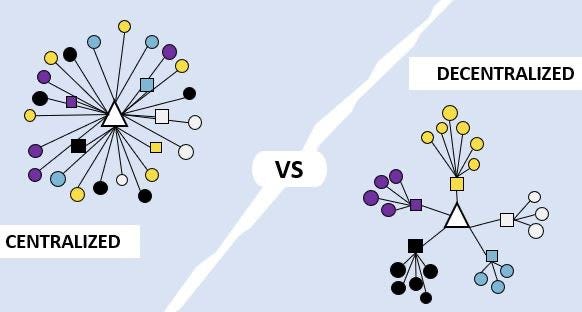The AI Power Grab: How Decentralized AI is Fighting to Keep Control in Your Hands
Artificial Intelligence (AI) has become an integral part of our lives, influencing everything from our daily routines to global decision-making processes. While AI has undoubtedly brought numerous benefits, it has also raised concerns about the concentration of power in the hands of a few.
Today, we are going to explore the threats posed by centralized AI and how decentralized AI can provide a solution to these challenges.
Centralized AI has been at the forefront of discussions about the potential for abuse of power due to their significant influence and the control exerted by a small number of people. Some recent examples of centralized AI LLMs and instances of their abuse include:
ChatGPT (OpenAI): As one of the most popular AI LLMs, ChatGPT has been under scrutiny for its potential to spread misinformation and for the ethical implications of its development. OpenAI, the company behind ChatGPT, has been criticized for its close ties to Microsoft, raising concerns about the concentration of power in the hands of a few large corporations.
Anthropic: An AI startup, founded by former OpenAI employees, has also been involved in the development of AI LLMs. While not as widely known as ChatGPT, Anthropic has been criticized for its lack of transparency and potential for misuse, as it operates as a closed-source model.
Google's LaMDA and PaLM: Google has developed its own AI LLMs, such as LaMDA and PaLM, which have raised concerns about data privacy and the potential for these models to be used for surveillance purposes. Google's significant market power and control over these models have led to accusations of abuse of power.
Meta's LLaMA: Developed by Meta (formerly Facebook), LLaMA is another centralized AI LLM that has faced criticism for its potential to perpetuate and amplify societal biases due to the company's history of mishandling user data and privacy.
These current AI systems lack transparency and accountability, making it difficult to understand how decisions are made and who is responsible for them. This closed system approach leads to the perpetuation of discriminatory practices, as the AI may inadvertently reinforce existing societal prejudices.
Centralized AI systems are highly vulnerable to manipulation and misuse. Since a single entity controls the system, it can be exploited to serve the interests of those in power, rather than the greater good. This results in the suppression of information, manipulation of public opinion, and even the erosion of democratic values.
Decentralized AI, on the other hand, offers a promising alternative to these challenges. By distributing control and decision-making across a network of interconnected nodes, decentralized AI systems promote fairness, transparency, and accountability.
This approach ensures that no single entity has the power to manipulate the system for their own benefit, reducing the risk of bias and misuse.
In addition to addressing the issues of power and control, decentralized AI also offers enhanced security and privacy. With a decentralized network, there is no single point of failure, making it more difficult for malicious actors to compromise the system.
Decentralized AI systems can be designed to protect user data and ensure that individuals retain control over their personal information.
This is where the blockchain-based AI platforms come in. These platforms leverage the security and transparency of blockchain technology to create decentralized AI networks that are resistant to manipulation and censorship.
By utilizing a distributed ledger, these platforms enable users to collaborate on AI projects, share data, and collectively make decisions, all while maintaining control over their data and privacy.
We have seen the emergence of many large decentralized AI networks already this cycle. The largest one coming to mind is TAO. However, the issue with TAO is that it can cost as much as two million USD for a developer to gain access to the network. This creates an enormous barrier for talented developers who may lack the funding.
That is why today we are adding a promising decentralized AI project that aims to solve these issues and create a more robust network with lesser barriers to entry. This project is led by developers from many of todays most promising blockchains. With team experience from multi-billion dollar projects, strong backing, and the strongest chart over the recent dip, it’s time to pay close attention to this AI giant in the making.

